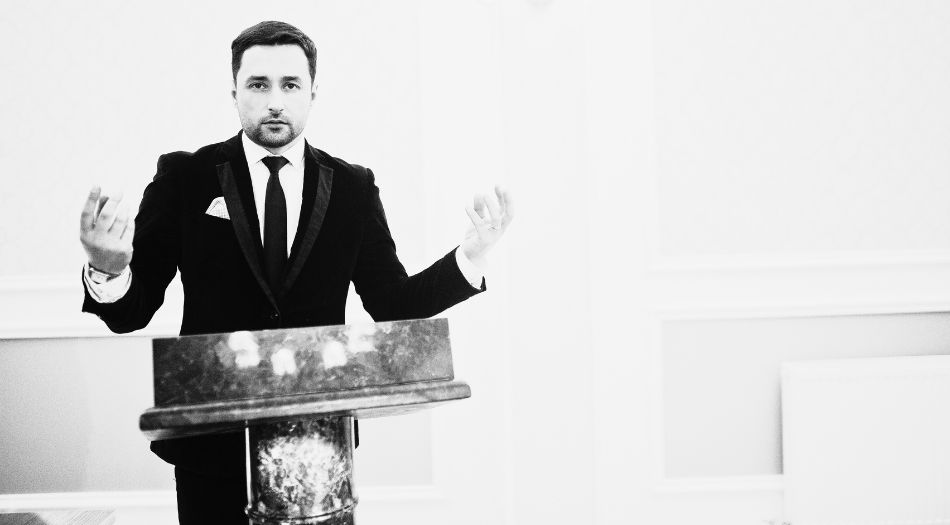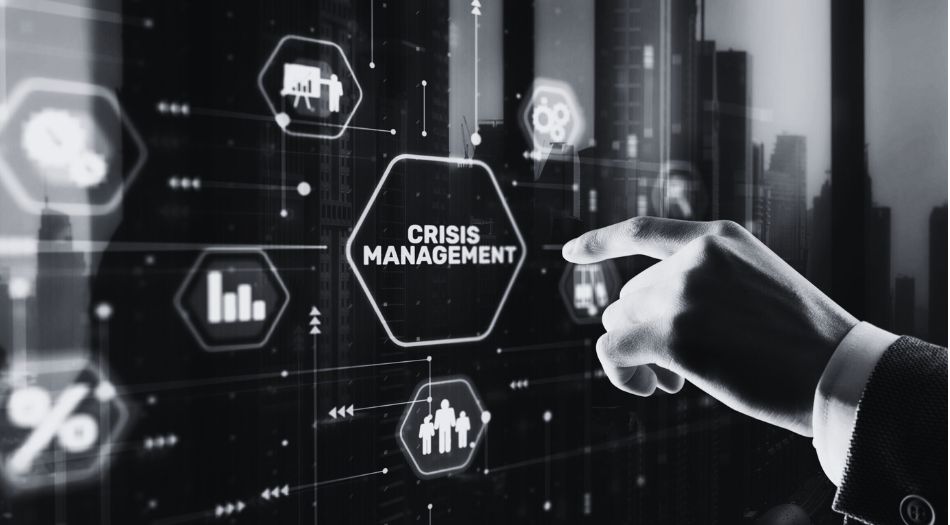Key Takeaways
- ‘15 Minutes of Shame’ highlights the destructive nature of public shaming and cancel culture, using real-life cases to demonstrate the profound effect these phenomena have on individuals, with Monica Lewinsky’s own experience providing a pivotal narrative.
- The documentary underscores the dual role of social media, facilitating both accountability and mob justice, and prompts a critical view of cancel culture’s impact on free speech and its tendency to overshadow education and growth opportunities.
- Building resilience in the digital age calls for self-leadership, a commitment to humility and accountability, and fostering a culture of learning from mistakes, which are key strategies for leaders to mitigate the negative effects of public shaming and cancel culture.
The Documentary: 15 Minutes of Shame
“The documentary ’15 Minutes of Shame’ captures a crucial insight into the mechanics of public condemnation, highlighting the profound emotional and social consequences of digital age persecution. At Scandal Coach, we see this film as powerful because it not only brings awareness to the destructive nature of shame but also underscores the need for a societal shift towards empathy and restorative dialogue, elements crucial in the healing process for those caught in the crossfire of public scrutiny.” Scandal Coach
‘15 Minutes of Shame’ is a poignant documentary that delves into the murky depths of online culture and its impact on ordinary people. The film presents a series of case studies, such as the story of an Amazon seller who was overwhelmed with hand sanitizer during the pandemic, to demonstrate the real-life consequences of internet backlash.
This documentary takes us on an intense journey through incidents of public humiliation faced by different individuals across the United States, illustrating the pervasive nature of this phenomenon. Addressing the serious issues of public shaming and character assassinations in digital spaces, ‘15 Minutes of Shame’ brings to light a sobering reality that is often dismissed or overlooked.

Monica Lewinsky's Involvement
Monica Lewinsky, a name that resonates with the pain and stigma of public shaming, serves as both a producer and narrator for ‘15 Minutes of Shame’. With her personal history plunged into the vortex of public shaming, Lewinsky uses her experiences to lend a powerful voice and perspective to the documentary.
In this film, Lewinsky shares her perspective as an early victim of internet shaming, detailing her experiences as an international scandal figure. This not only adds a depth of understanding to the issue of public shaming but also serves as a testament to her resilience and courage.
The Filmmakers: Steve Ascher and Meg McLagan
Behind the thought-provoking narrative of ‘15 Minutes of Shame’ are seasoned documentary filmmakers Steve Ascher and Meg McLagan. Known for their commitment to addressing social issues through their work, Ascher and McLagan have a history of creating content that sparks societal reflection and inspires change, such as their latest project on HBO Max.
Their primary goal in creating ‘15 Minutes of Shame’ was to highlight the consequences of online public shaming and cancel culture. They aimed to foster a better understanding of the impact of digital identity on personal lives and society at large, a mission that the film attempts to achieve with depth and sensitivity.
Modern Public Shaming: Cancel Culture
Cancel culture, a term that has gained prominence in recent years, is synonymous with callout culture and modern forms of ostracism. The term ‘cancel’ has its roots in 1980s slang, where it referred to the act of breaking up with someone. Fast forward to today, it has evolved into a collective response to objectionable actions, particularly on social media.
The rise of cancel culture, especially in the United States, has sparked contentious debates. The online world is now a stage where individuals or entities are frequently targeted for perceived offenses, leading to public shaming and character assassinations.
This phenomenon, powered by the internet and social media, has become a prevalent form of modern public shaming.

The Power of Social Media
Social media plays a significant role in the amplification and dissemination of cancel culture. It has made it easier to share information and mobilize collective action against individuals or entities. This power of social media has transformed the way we perceive and respond to perceived offenses, often leading to cancel campaigns that can result in:
- job losses
- reputational damage
- financial consequences
- social isolation
However, the power of social media is a double-edged sword. While it can serve as a platform for accountability, it can also foster an unnuanced approach by online vigilantes who may disregard important distinctions, leading to unjust consequences. This highlights the need for a more thoughtful and balanced approach to our online interactions.
Critics and Proponents
Cancel culture, while empowering to some, is a contentious issue that has drawn flak from critics. Critics warn that cancel culture can result in people being ‘canceled’ for relatively minor mistakes, thus emphasizing a punitive approach over education and growth. They argue that it can suppress free speech and lead to self-censorship out of fear of being publicly shamed or boycotted.
Some of the criticisms of cancel culture include:
- People being ‘canceled’ for relatively minor mistakes
- Emphasizing a punitive approach over education and growth
- Suppressing free speech
- Leading to self-censorship out of fear of being publicly shamed or boycotted
On the other hand, proponents assert that cancel culture empowers voices that have traditionally been marginalized and allows these communities to demand justice through visibility and collective action. They counter that cancel culture is a necessary means of holding individuals accountable, especially those in positions of power who may not be affected by formal justice systems.
Navigating Cancel Culture in the Digital Landscape: Self-Leadership and Growth
“Navigating cancel culture requires a nuanced approach, especially for high-profile figures in today’s relentless digital landscape. At Scandal Coach, we emphasize the importance of being proactive rather than reactive. This involves understanding the digital currents, maintaining authenticity while strategically managing one’s public persona, and engaging with your audience in a way that reflects genuine understanding and respect for the issues at hand. It’s about steering through the storm with integrity, ensuring that every step taken is a step toward greater understanding and resilience.” Scandal Coach
In the face of public shaming and cancel culture, it is crucial for individuals, especially leaders, to cultivate self-leadership skills such as self-motivation, self-direction, and the ability to proactively solve problems. Grounding one’s self-perception in mutable attributes, separate from knowledge and success, can help create stability during challenging times.
Careful and deliberate responses to public shaming are critical for leaders. Knee-jerk reactions can lead to worsening the situation and inflicting greater harm on the leader’s reputation. By developing necessary technologies and skills for protecting and managing one’s reputation, leaders can thrive within the modern reputation economy.

Demonstrating Accountability and Humility
Demonstrating accountability and humility is essential for leaders navigating the digital landscape. By openly recognizing one’s shortcomings and fostering an environment where accountability is pursued, leaders express personal humility. Transparency about their journey, including admitting biases and errors, can encourage a culture of curiosity, compassion, and development.
Mistakes owned up to and navigated with integrity can actually strengthen a leader’s credibility and trustworthiness. This can be more impactful than having an impeccable record. By defining the organizational culture and its core values with positive practices, leaders can significantly mitigate the adverse effects of public shaming.
Turning the Tide: Positive Change and Growth
Leaders can turn the challenges presented by cancel culture into opportunities for growth by:
- Promoting adaptability
- Encouraging innovation
- Cultivating a culture of trust and accountability
- Establishing a leadership community that prioritizes learning from mistakes
By implementing these strategies, leaders can navigate the complexities of cancel culture effectively and create an environment where grace and achievement coexist.
Accountability in leadership means openly acknowledging errors and taking responsibility. Humility involves recognizing one’s own limitations and being receptive to feedback. By cultivating these qualities, leaders can help turn the tide on cancel culture, fostering a more understanding and empathetic digital culture.
Real-life Stories: The Human Impact
“In our work at Scandal Coach, we’ve navigated a tapestry of high-stakes scenarios—from public shaming to intricate cancel culture battles. Each story is unique, yet all share a common thread of human vulnerability and the quest for redemption. We’ve supported figures who felt the world turn against them overnight, guiding them not just to survive but to transform adversity into advocacy and silence into strength. These real-life stories aren’t just about recovery; they are profound journeys of transformation that inspire us to approach each new challenge with empathy and expertise.” Scandal Coach
The human impact of public shaming and cancel culture is at the heart of ‘15 Minutes of Shame’. The documentary features stories from everyday people whose lives have been deeply affected by their online characterizations. For instance, Emmanuel Cafferty lost his job over a misinterpreted hand gesture, and Laura Krolczyk faced termination from her hospital job due to comments made on Facebook.
The effects of public shaming can be devastating, leading to serious repercussions such as job loss and long-lasting emotional distress. These narratives underscore the full scope of the human impact that digital culture and public shaming can exert, a sobering reality that underscores the urgency of addressing this issue.

Lessons and Resources for Combating Public Shaming
While the impacts of public shaming can be severe, there are strategies and resources available to combat this phenomenon. Engaging in foundational levels of authentic public relations can help individuals create a proactive positive image, providing a buffer against the effects of public shaming. Companies too can reduce instances of public shaming by implementing comprehensive employee policies that establish expectations for behavior and methods for addressing infractions.
Scandal Coach specializes in working with pubic figures and those in leadership to traverse the murky road of scandals, shame, crisis and cancel culture. We advocate for preparedness, rather than reactivity when a crisis emerges, although inevitably most of the work we do is urgent and critical.
To prepare for a scandal, start by reading our Scandal Guide which shares with you some of the lessons we have learned in our decades of experience leading in this area: DOWNLOAD THE GUIDE
Educating Yourself and Others
Educating oneself and others about cancel culture is crucial in fostering a more understanding and empathetic online culture. Online resources such as lesson plans and articles are available to help individuals understand and form their own opinions about cancel culture. These educational materials offer varying perspectives, allowing for a comprehensive study of the topic.
Teaching about cancel culture can help students grasp its implications in the media and society. It stresses the importance of accountability without resorting to mass bullying. Monica Lewinsky’s Ted Talk ‘The Price Of Shame’ is a particularly powerful resource for understanding public shaming, offering insight from someone who has experienced it firsthand.
Supporting Positive Change
Supporting positive change in the face of cancel culture requires a shift in how we approach public shaming. Advocating ‘calling in’ rather than ‘calling out’ can facilitate individual conversations that foster growth and understanding, supporting a healthier digital culture.
Leaders play a key role in this shift. By embedding diversity, equity, and inclusion as strategic priorities, consistently communicating these goals, and integrating accountability measures, leaders can steer positive change. Research shows that companies with steadfast leadership commitment towards these areas, and the use of data to inform their decisions, are more successful in these areas.
Your 15 Minutes of Shame: Next Steps
Public shaming and cancel culture are complex phenomena that have profound impacts on individuals and society. The HBO Max documentary ‘15 Minutes of Shame’ provides a crucial examination of these issues, presenting real-life stories of people affected by online character assassinations and exploring the roles of those contributing to this culture.
As we navigate the digital landscape, it is crucial for us to foster self-leadership and growth, demonstrate accountability and humility, and support positive change. By doing so, we can contribute to a more understanding and empathetic digital culture, where mistakes are treated as opportunities for growth rather than reasons for cancellation.
To discover more about preparing for a scandal, or your own 15 minutes of shame, download the Scandal Coach guide.




